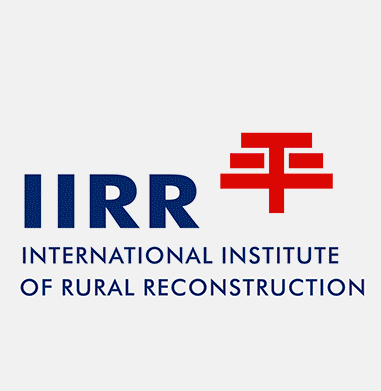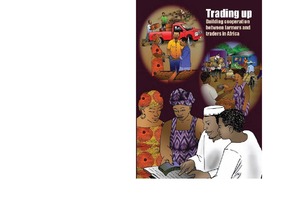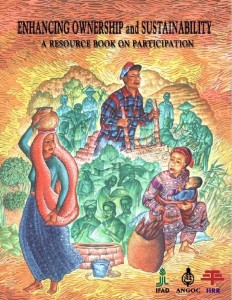We have over 95 years of experience in empowering communities to overcome poverty. Led by our founder Dr. Y.C. James Yen, since early 1920s, our predecessor the Chinese Mass Education Movement was responsible for changing, for better, and the lives of over 200 million Chinese peasants through the power of functional literacy. Since IIRR was formally organized as an international development, training, and research organization in 1960 in the Philippines, we have continued to empower the rural poor to end poverty in Asia, Africa and Latin America.
We use innovative approaches that are integrated, people-centered and sustainable; the process we pioneered since early 20’s when these concepts were little known to development community. This philosophy of development guides all our work; we do not offer handouts. We offer education and capacity building so that community members and their local organizations can enact changes relevant to them. Our core tenet at IIRR is to develop sustainable and effective solutions to poverty reduction by working with and learning from local communities. We believe in “outsiders can help, but insiders must do the job”.
We have strong anti-poverty programs in eight (8) countries in Southeast Asia (Philippines, Cambodia and Myanmar) and Eastern and Southern Africa (Kenya, Ethiopia, Uganda, South Sudan and Zimbabwe). In these countries and regions, we work in collaboration with more than 125 local development partners, and all our 140 staff members are nationals of these countries.
We are a United States-based 501(c) (3) private voluntary organization with a small office in New York City, but we operate our headquarters from the global south, the Philippines. These are the deliberate choices we made to be closer to the people we work with and which make our work relevant and cost effective.
Members:
Resources
Displaying 6 - 9 of 9Trading up: Building cooperation between farmers and traders in Africa
Written and coordinated through a ‘writeshop’ approach, this book stands up for traders – who are often treated with mistrust by smallholder farmers. It aims to improve the relationship between producers and traders, thus contributing to more sustainable value chains that provide access to markets for local producers in Africa. Full of short stories that are unique and rich in information, Trading up’s 15 richly illustrated case studies cover a wide range of countries and commodities.
Enhancing Ownership and Sustainability: A Resource Book on Participation
The publication focuses on participatory processes and their management, and presents a broad range of concrete experience with different tools. It is assumed that the reader is already familiar with the use of tools like PRA/PLA/PME and is now interested in second generation issues related to project design, training and measurement of impact associated with the use of participatory processes. Each article reflects a specific experience. As such, it has its own validity.
Enhancing Ownership and Sustainability: A Resource Book on Participation
The publication focuses on participatory processes and their management, and presents a broad range of concrete experience with different tools. It is assumed that the reader is already familiar with the use of tools like PRA/PLA/PME and is now interested in second generation issues related to project design, training and measurement of impact associated with the use of participatory processes. Each article reflects a specific experience. As such, it has its own validity.
Resource mapping: from participatory methods in community-based coastal resource management
A practical manual outlining the concept of this methodology and giving clear, step by step instructions on how to carry out the activity in a coastal community.The aims of resource mapping are:to provides a visual representation of resources and their usesto find a starting point for participatory problem analysis and planning.The manual describes variations on the excercise, including gender based mapping exercises.




